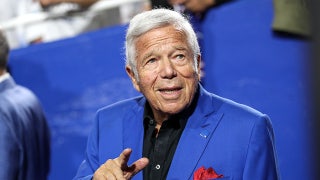By Simon Evans
WHISTLER (Reuters) - When it comes to Alpine skiing these are rapidly becoming America's Games.
On Friday, Bode Miller took silver and Andrew Weibrecht a surprise bronze in the men's super-G leaving the U.S. with a grand tally, in men and women's Alpine ski, of six medals.
That's U.S.A six, Rest of the World six - more medals than the Americans have won in a single Winter Games and there are still six more races left.
"It's kind of like the U.S. championships," said Ted Ligety, the defending Olympic champion in combined.
Miller and Weibrecht were the second American pair to double up on the podium - on Wednesday, Lindsey Vonn won downhill gold with compatriot Julia Mancuso taking silver.
Not for the first time, U.S. skiers are producing their very best performances where and when it matters most.
"I guess it's just the way Americans operate, we have always been big game athletes, going back to Tommy Moe and Bill Johnson, pretty much throughout history, we have been this way," said Weibrecht, who has yet to podium in the World Cup.
Johnson won downhill gold in Sarajevo in 1984, just a month after his first ever win on the World Cup tour and then Moe, won the same prize in Lillehammer ten years later, before he had even won on the circuit.
For Miller, the key to U.S. success at Whistler has been a combination of quality and impetus.
"Asides from the fact that we are just much better than everyone else, I think that (it helps) once you start to get momentum going as a team, especially at an Olympics or a big games," said Miller.
The all-rounder, the U.S.'s most successful skier with four Olympic medals in his career, said the regular season reduces the impact of such momentum.
"The World Cup just grinds you down, it's hard to really get a feel of momentum...but you need a tight group to sort of feel the momentum," he said.
Watching the U.S. athletes cheer each other on from the finish area and it is evident they have forged a real team spirit.
"We were all at the opening ceremonies together and it's a group of young athletes who fed off that really easily. As soon as you watch your team mates experience joy and excitement it makes it much more real and accessible for the other athletes," added Miller.
"They see someone they know well and they feel a direct connection with and it makes them reach for it a little bit more authentically. I think that's what you are seeing. Once that momentum starts, they are skiing really aggressively but with their heart too and that's the results we are seeing."
Weibrecht, a 24-year-old from Lake Placid, New York, had never even made the top ten in super-G before Friday, but agreed with Miller's point, saying he was certainly given a boost by the performances of his team-mates.
"It's definitely been inspiring having Julia and Lindsey and Bode doing well at the start of the Olympics, we've had a medal in every event so far," he said.
"I think that part of it might be that we are on North American soil and we always seem to have better results when we are at home or close to home, everything is a little bit more familiar with the food and our lodging," he said.
"This is the Olympics, this is the best possible place to have a great race," added Weibrecht.
U.S. men's team coach Sasha Rearick said the team went well beyond the men and women on the ski slope.
"It's been one hell of a day and one hell of an effort. The guys came out and just put it down the hill. I'm so proud of them, so proud of the team from the physios to the cook, to our sports science department - everyone put it in," he said.
(With additional reporting by Alan Baldwin; Editing by Miles Evans)








































